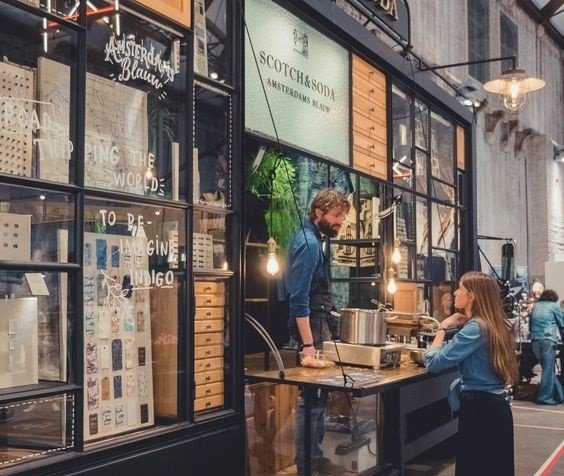Enhancing the experience: tapping into a growing demand for quality

The last few years have been tough times for retailers both in New Zealand and overseas, the global boom of the ‘experience economy’ has seen both Kiwis and international tourists driving strong growth in New Zealand’s hospitality industry.
Stats NZ data indicates that between 2011 and 2016, the number of businesses listed under ‘Accommodation and Food Services’ grew from 18,300 to 20,532. Employee count also increased from 129,200 in 2011 to 149,000 (19,800 more employees) in that five-year period.
It is important to acknowledge that the increase of retail could be less than what is reported as the hospitality part of it could be raising the average in instances where they are integrated, such as the total value of a mall. Regardless, the ability to increase sales is likely due to the fact that SMEs in the retail and hospitality industry are one of the most connected when it comes to engagement.
J’aime Les Macarons is a Christchurch-based business selling French-style sweet treats. It recently opened a pop-up inside Seletti Concept Store in Newmarket, which sells high-end home décor and apparel.
Although J’aime Les Macarons has a committed fan base down in Christchurch, the pop-up closed within a few months. According to a spokesperson for J’aime Les Macarons, the closure was due to low foot traffic within the area.
Less-than-adequate sales is a reality for some retailers, and the example of J’aime Les Macarons’ experience shows that just because a retailer adds a hospitality aspect into its model doesn’t always mean it is going to work.
Made to order
A study by Antony Ede and Allister Hitchcock for market researcher TRA, titled Great experiences keep customers coming back, analysed data on hundreds of eateries across New Zealand to find out whether great customer experience really pays. In the study, data on what consumers said about the eateries’ service on rating website TripAdvisor was compared to how many consumers came back according to electronic transaction data from Paymark.
Researchers found that 34 percent of customers returned when the quality of the experience was five stars and the price of the meal was on the lower spectrum. This is compared with the lowest return rate of 24 percent, where price was on the low spectrum but quality was also scored low.
The study’s average percentage for a customer return rate was around 30 percent. This shows that for the most part, consumers are willing to return and pay more for meals if the quality of the food and the experience remains higher on the scale.
This result can be translated into most hospitality and retail: consumers will be willing to return if the quality of the experience remains high – regardless of price.
Original recipe
Auckland garden store chain Kings Plant Barn has included a branded hospitality offering – the Kings Plant Barn Café – in all its locations since its opening in 1992.
Jon Kirman, marketing manager for Kings Plant Barn, says the café is a destination itself but its location greatly relies on the consumers already in-store wanting to visit the café.
“Gardening is a leisure activity, and a visit to a good café at the same time as buying your gardening supplies or getting your gardening advice is sure to add to the whole experience.
“By having a café on site, it helps to turn a traditional retail space into a destination, an afternoon outing with the family. It adds a good level of enjoyment to the shopping experience.”
Kirman says that for the gardening centres, as for most other mixed-use spaces, neither one would operate to its fullest capabilities without the other.
“Both business work really well together and most customers enjoy shopping at both when they come to visit our site.”
Without releasing formal financial reports, Kirman says that the profit the café draws in is enough to cover all running costs. They are set up as individual businesses and are not subsidised by the garden centres.
Although the cafes are such a staple of the centres, like all retailer models, Kirman says if the business model of the café stopped producing a profit it would need to be reconsidered to hold it as a permanent structure.
“Although I don’t see why they would ever stop making a profit. Like any café, provided that it is well-run and managed there’s no reason why it shouldn’t be a thriving business.”

Supersize it
Kiwi Property has implemented some of Auckland’s biggest expansions of refreshment and dining areas in its retail precincts over the last two years. The Grove dining lane, set to open December this year alongside Sylvia Park Shopping Centre is a $9.1 million project.
The Grove dining lane is planned to cater to the growing demand for high-quality dining experiences, while also increasing foot traffic to the surrounding retail areas.
Chris Gudgeon, Kiwi Property chief executive, says The Grove is a long-term vision to create a world-class town centre – one which focuses on the whole experience rather than just the food offered.
“It is designed to integrate seamlessly with an upgrade and refresh of the existing dining lane, and will set a new standard for suburban dining in Auckland.”
Although $9 million is no small investment, Sylvia Park itself is valued at around $724 million.
Another part of Kiwi Property’s focus on hospitality expansion is LynnMall’s ‘The Brickworks’ dining lane. Its completion in late 2015 saw the new hotspot open alongside an expanded retail mix. The expansion, including the retail sector, capped at $39 million, while LynnMall’s value upon completion was $269 million, as reported by Kiwi Property’s 2016 annual report.
Both these spaces are examples of retail and hospitality working together to maximise profit, as each draw in select crowds which can transfer onto the other. With retail, all the customer’s needs must be met for the best experience, and this includes food, drink and some level of entertainment they cannot get elsewhere.




